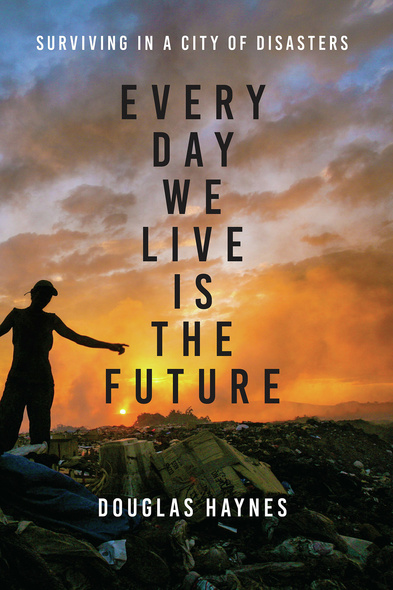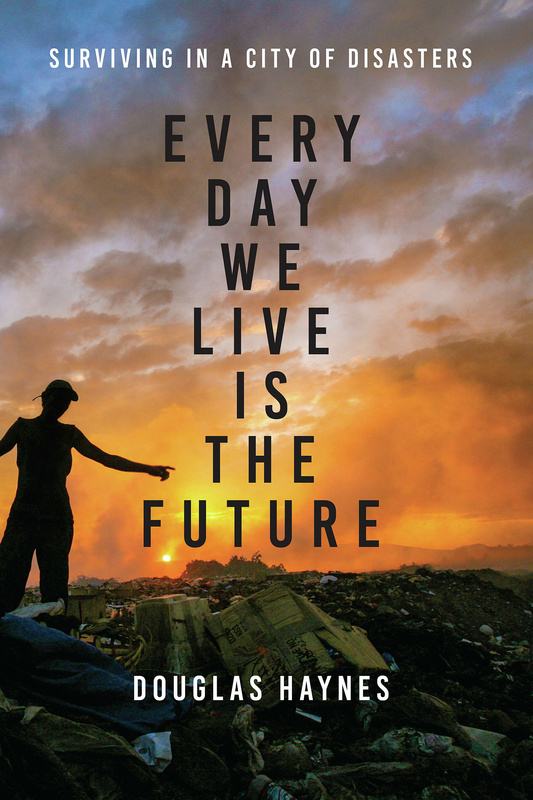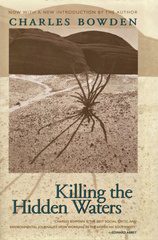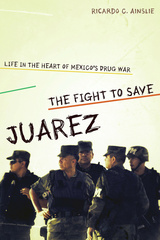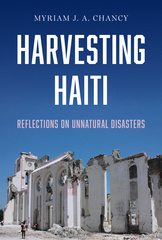Every Day We Live Is the Future
Surviving in a City of Disasters
When she was only nine, Dayani Baldelomar left her Nicaraguan village with nothing more than a change of clothes. She was among tens of thousands of rural migrants to Managua in the 1980s and 1990s. After years of homelessness, Dayani landed in a shantytown called The Widows, squeezed between a drainage ditch and putrid Lake Managua. Her neighbor, Yadira Castellón, also migrated from the mountains. Driven by hope for a better future for their children, Dayani, Yadira, and their husbands invent jobs in Managua’s spreading markets and dumps, joining the planet’s burgeoning informal economy. But a swelling tide of family crises and environmental calamities threaten to break their toehold in the city.
Dayani’s and Yadira’s struggles reveal one of the world’s biggest challenges: by 2050, almost one-third of all people will likely live in slums without basic services, vulnerable to disasters caused by the convergence of climate change and breakneck urbanization. To tell their stories, Douglas Haynes followed Dayani’s and Yadira’s families for five years, learning firsthand how their lives in the city are a tightrope walk between new opportunities and chronic insecurity. Every Day We Live Is the Future is a gripping, unforgettable account of two women’s herculean efforts to persevere and educate their children. It sounds a powerful call for understanding the growing risks to new urbanites, how to help them prosper, and why their lives matter for us all.
A humanized illumination of the challenges facing developing countries as climate change accelerates the race to the bottom...A potent book that gives faces and voices to trends that are too often reduced to cold statistics and academic analyses.
Haynes contributes to the expanding literature on the human dimensions of climate change and to the intimate connections between climate change and the movement of people within and across borders…[Every Day We Live Is the Future] has much to offer to diverse social and environmental justice concerns.
Haynes's book is a heartfelt and respectful description of the life stories of two Nicaraguan women, Yadira and Dayani…His work is welcome at a time of increasing hatred directed at those who are living the margins around the globe...As we read the book, we come to understand the where and how of the margins. What Haynes achieves is no small feat.
This is a vivid and gritty account of life in the kind of urban shantytown where a huge percentage of humanity lives out a lifetime. Surviving there is hard and getting harder, as a changing environment multiplies the misery—and demands real action from all of us. A crucial read.
Douglas Haynes has written an intimate, intrepid, and hugely consequential book in the spirit of Katherine Boo’s bestseller, Behind the Beautiful Forevers. He offers us a rare and deeply moving bottom-up view of the precarious lives of the rural migrants who are swelling our planet’s cities by one million people per week. This is a remarkable book about some of the most decisive concerns to shape our century: the sprawl of unplanned cities, accelerating environmental crises, the widening gulf between the rich and the abandoned, and, through it all, the always-surprising new forms of human resilience.
For the valiant women of this book, climate change isn’t a theory but a battle waged daily. Douglas Haynes recreates their stories in luminous prose that conveys a deep sense of empathy. An urgent and necessary read.
In this soulful book about what it means to exist on the polluted-crowded-dirty-colorful-vibrant-loving margins of a twenty-first-century metropolis, Douglas Haynes clarifies the complex issues affecting families in such cities—at once describing with elegance and insight the world as it is now, and as it increasingly everywhere may be.
This is a beautifully written, superbly reported book, a necessary exploration of real lives we cannot ignore—not after this important book. The lives in these pages will stay with you and, one hopes, your life will stand with them.
Douglas Haynes is an essayist, journalist, and poet whose work has appeared in Orion, Longreads, Virginia Quarterly Review, Huffington Post, Boston Review, and many other publications. He teaches writing at the University of Wisconsin Oshkosh.
- Map of Nicaragua
- Map of Managua
- Family Trees
- Prologue
- Part One: Storms Without Names
- Part Two: Down from the Mountains
- Part Three: Sheltering
- Part Four: The Sum of Small Disasters
- Epilogue
- Author’s Note
- Acknowledgments
- Notes

